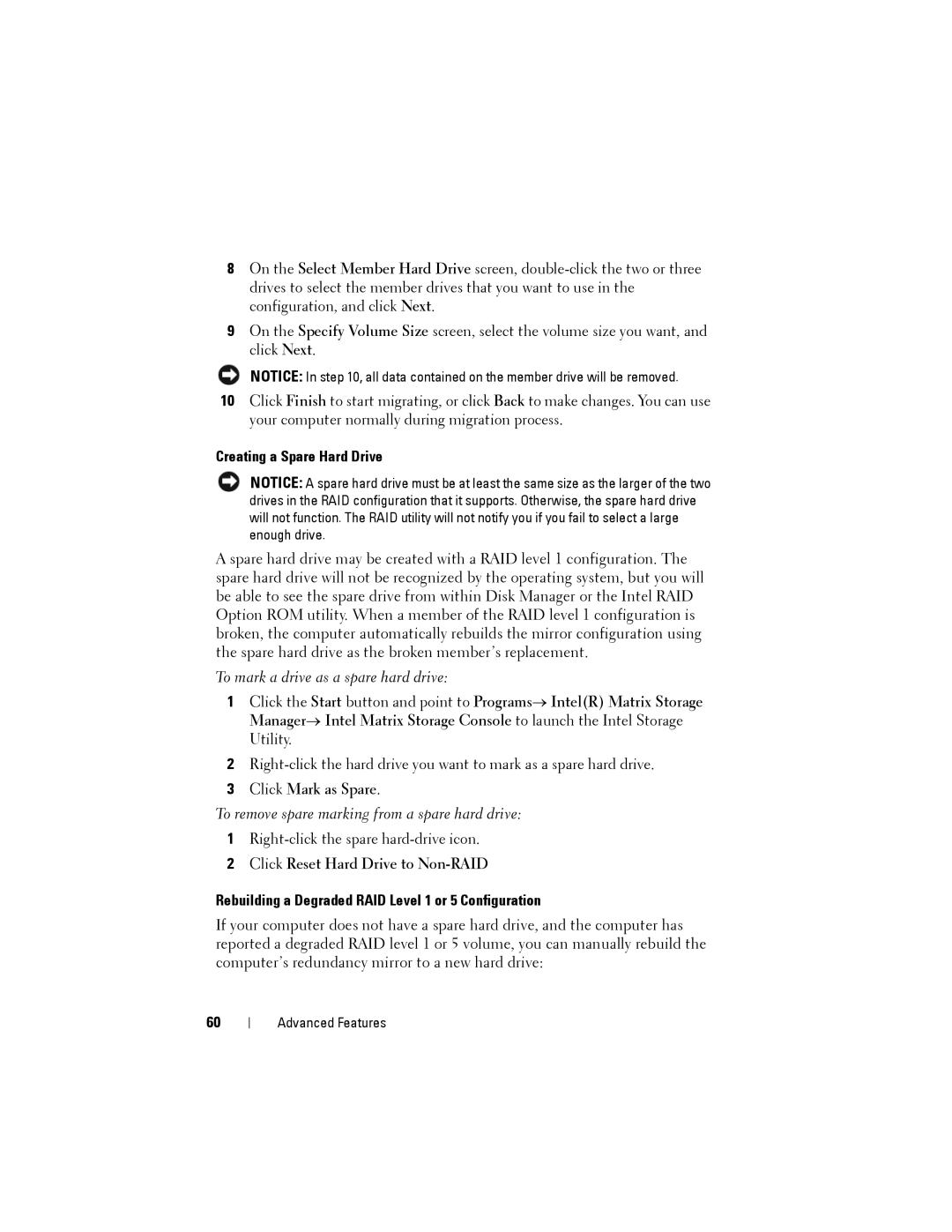8On the Select Member Hard Drive screen,
9On the Specify Volume Size screen, select the volume size you want, and click Next.
NOTICE: In step 10, all data contained on the member drive will be removed.
10Click Finish to start migrating, or click Back to make changes. You can use your computer normally during migration process.
Creating a Spare Hard Drive
NOTICE: A spare hard drive must be at least the same size as the larger of the two drives in the RAID configuration that it supports. Otherwise, the spare hard drive will not function. The RAID utility will not notify you if you fail to select a large enough drive.
A spare hard drive may be created with a RAID level 1 configuration. The spare hard drive will not be recognized by the operating system, but you will be able to see the spare drive from within Disk Manager or the Intel RAID Option ROM utility. When a member of the RAID level 1 configuration is broken, the computer automatically rebuilds the mirror configuration using the spare hard drive as the broken member’s replacement.
To mark a drive as a spare hard drive:
1Click the Start button and point to Programs→ Intel(R) Matrix Storage Manager→ Intel Matrix Storage Console to launch the Intel Storage Utility.
2
3Click Mark as Spare.
To remove spare marking from a spare hard drive:
1
2Click Reset Hard Drive to
Rebuilding a Degraded RAID Level 1 or 5 Configuration
If your computer does not have a spare hard drive, and the computer has reported a degraded RAID level 1 or 5 volume, you can manually rebuild the computer’s redundancy mirror to a new hard drive:
60
Advanced Features
